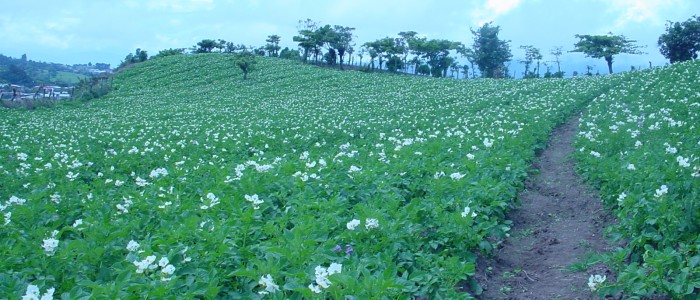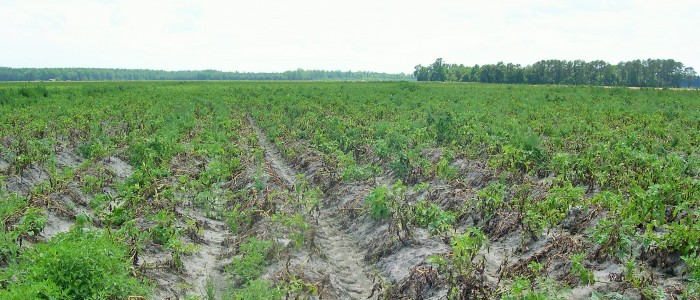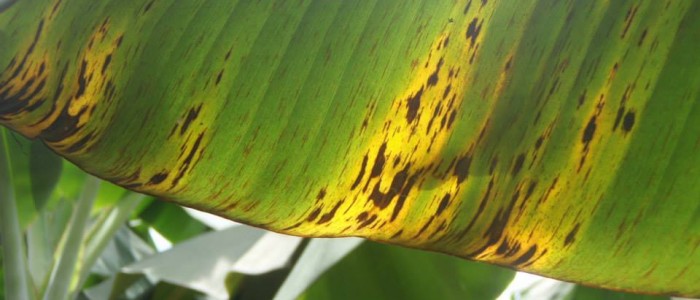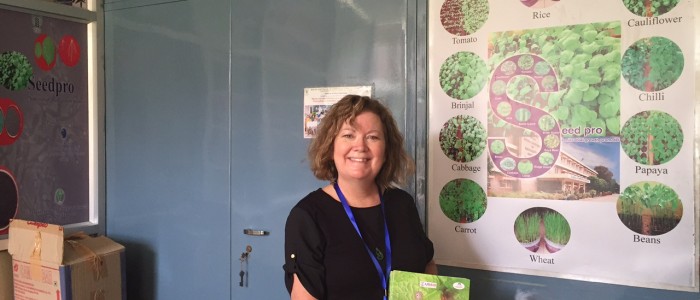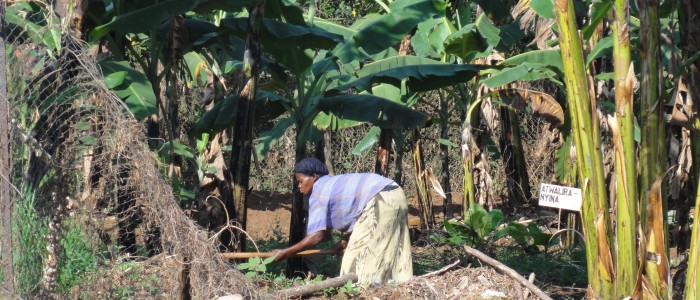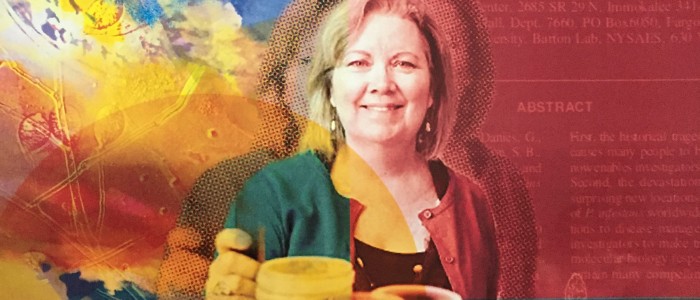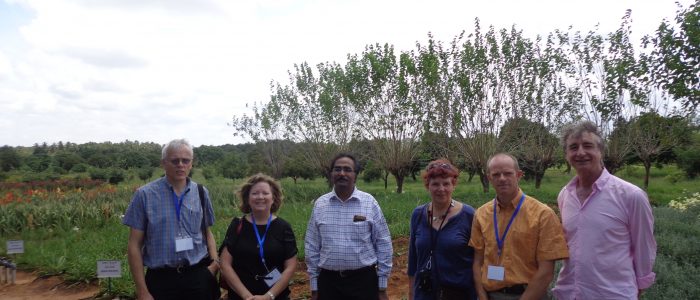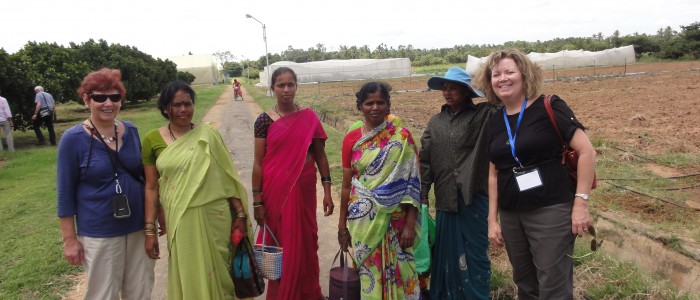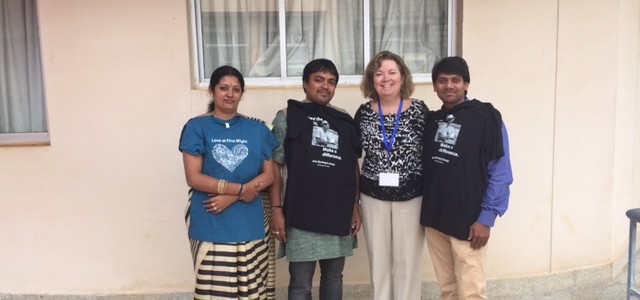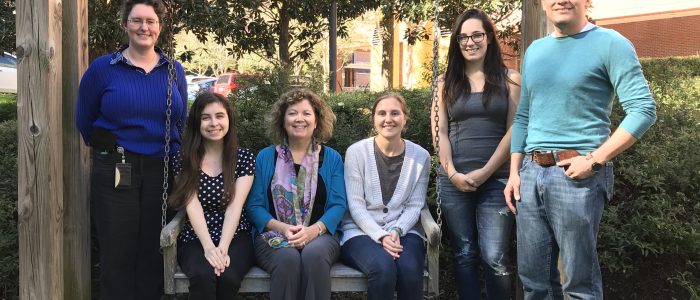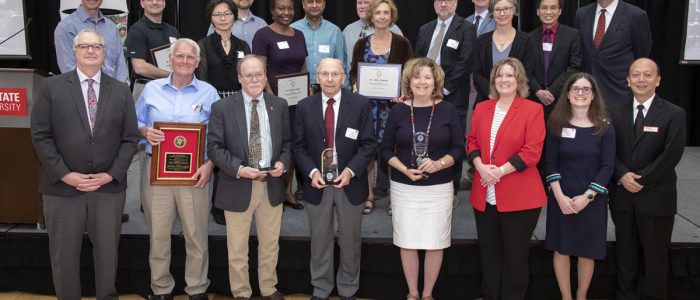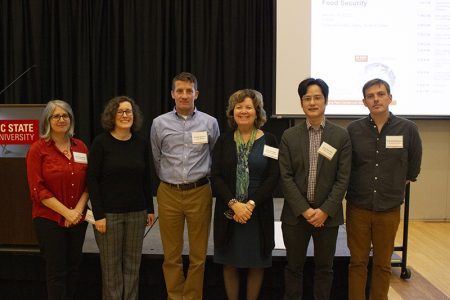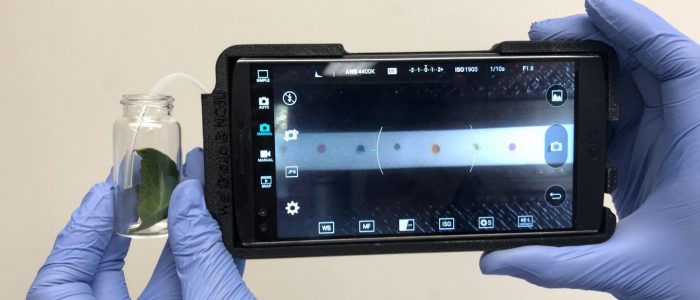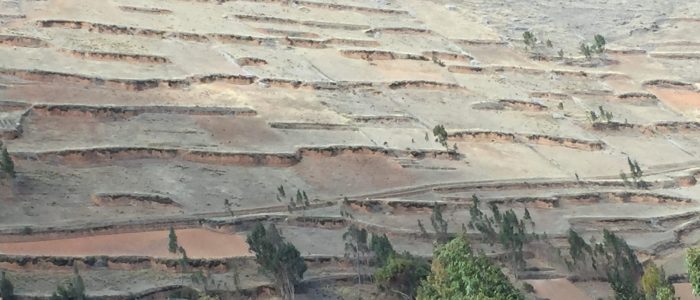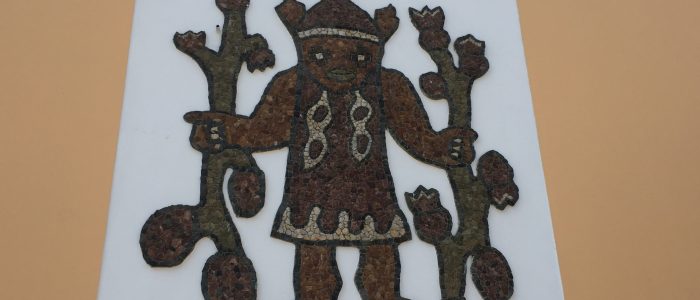Welcome to the Ristaino Lab
My lab works on emerging plant diseases that threaten global food security. A major focus of research is to understand the factors that contribute to disease emergence including the epidemiology and population genetics of Oomycete plant pathogens in the genus Phytophthora. Phytophthora infestans caused the Irish potato famine in the 1840s, and is a reemerging threat to global food security. We study the population genetics and migrations of both historic and present day strains of the pathogen. My lab was part of a multi-investigator group that sequenced the genome of the pathogen. We are now using the genome sequence to develop novel strategies for managing disease in the field. Our team has developed a web portal called USAblight.org that can be used to track recent outbreaks of disease using geospatial analystics. We have also worked on other pathogens of tropical crop plants including black Sigatoka on banana, downy mildew of tobacco, soilborne fungi and coffee rust that are threats to global food security. Dr. Ristaino served as the founding director of the “Emerging Plant Disease and Global Food Security” cluster at NC State from its inception in 2015 until Sept 2023. She has served as a Jefferson Science Fellow for the US Department of State and worked in the Bureau for Food Secuirty at USAID. She received a Fulbright European Research Scholar Award to work with the University of Catania on late blight in Italy in 2018. In August 2020, she was elected a Fellow of the American Phytopatholoical Society and in November, 2020, she was elected a AAAS Fellow . In 2023, Dr Ristaino was awarded a second Fulbright Irish Research Scholar Award to the Republic of Ireland and worked in Dublin with the Department of Food Agriculture and the Marine from March to August 2024.
Learn about Dr. Ristaino’s sabbatical research in a lecture “Tracking a Plant Killer: Historical and Scientific Reflections on the Irish Famine Pathogen” given by Jean Ristaino Seminar Announcement, Raleigh, March 17, 2025
See my recent lecture at the Royal Irish Academy, Dublin. Tracking a Plant Killer: Historical and Scientific Reflections on the Irish Famine Pathogen. Royal Irish Academy, Dublin Ireland, August 20, 2024.
See our new study out in Nature communication’s on “Evolution of Phytophthora infestans on its Potato Host Since the Irish Potato Famine”
It was a great pleasure to deliver the POD Lecture at APS. Tracking a Plant Killer: Historical and Scientific Reflections on the Irish Famine Pathogen. Pathologist of Distinction Lecture, August 2023, Denver CO.
I am a Fellow of the Linnean Society and gave a lecture there in 2022. The Potato Plague: A Painfully Interestign Subject. The Linnean Society, London, May 19th, 2022
We are excited to announce our new Predictive Intelligence for Pandemic Preparedness (PIPP) Grant titled “Real-Time Analytics to Monitor and Predict Emerging Plant Disease” was awarded for $1 Million USD by the National Science Foundation. Plant diseases don’t stop at a nation’s borders and miles of oceans don’t prevent their spread, either. That’s why plant disease surveillance, improved plant disease detection systems and predictive plant disease modeling – integrated at the global scale – are necessary to mitigate future plant disease outbreaks and protect the global food supply, according to a team of researchers in a new commentary published in Proceedings of the National Academy of Sciences.
See local CBS17 news on the PNAS paper and Washington Post report “Plant Pandemics and how they could endanger our food supply. Scientists sound alarm on growing menace”.
In many contexts and times, diseases have reshaped life, whether it be human life, animal life or plant life. Here we share a podcast interview of ongoing research about the consequence of plant disease. I gave a podcast on the consequence of plant diseases and the Irish Potato famine. In this podcast, I share own experience with plant pathology, her global travels to track outbreaks and then talks about my efforts to understand the history of the potato famine and why it is relevant to controlling emerging pathogens of all kinds today.
Listen to my daughter Sarah Ristaino since a song on the impact of the loss of potatoes on the Irish food supply “Oh the Praties they Grow Small”
Check out our ICPP2018 session at Harvard Musuem of Natural Science on Crop Diseases that Threaten your Breakfast
Watch a recording of my recent Plant Pathology seminar on “Tracking Worldwide Migrations, Evolutionary Relatedness and Reemergence of Phytophthora infestans: A Threat to Global Food Security” here.
Read about my 2018 sabbatical to the University of Catania in Italy in Phytopathology News.
See my recent participation in the Genetic Engineering and Society AGES: Untold Stories of GMO Pioneers

